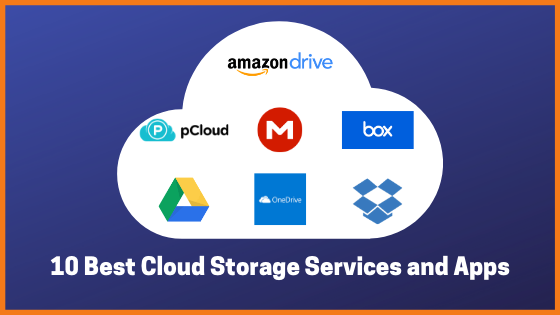How Startups Can Leverage the Cloud to Scale Rapidly: Insights from Kiran Kumar Kakkireni

Dallas (Texas) [USA], December 30: In today’s hyper-competitive startup landscape, scaling quickly and efficiently is often the difference between success and failure. Cloud computing has emerged as a game-changing tool, enabling startups to achieve rapid growth without the heavy upfront costs of traditional IT infrastructure. But how can startups fully leverage the cloud to unlock its potential?
We turned to Kiran Kumar Kakkireni, a seasoned DevOps and cloud engineer with over 12 years of experience, to gain insights into how startups can harness the power of the cloud to scale their operations and disrupt markets.
Why the Cloud is a Startup’s Best Friend
“The cloud has democratized access to technology,” explains Kiran. “It offers startups the tools they need to innovate, scale, and compete with established players—all without the financial and logistical burdens of physical infrastructure.”
According to Kiran, the cloud’s scalability, cost efficiency, and global reach make it an indispensable asset for startups. With platforms like AWS, Google Cloud, and Microsoft Azure offering a pay-as-you-go model, startups can experiment and grow without committing to large capital expenditures.
Key Benefits of the Cloud for Startups
- Scalability: “Startups often face unpredictable growth,” says Kiran. “The cloud allows them to scale their resources up or down instantly, ensuring they’re always prepared for spikes in demand.”
- Cost Efficiency: The pay-as-you-go model eliminates the need for costly hardware investments. “You’re only paying for what you use,” Kiran adds. “This is critical for startups managing tight budgets.”
- Speed to Market: The cloud provides pre-built templates and tools, enabling startups to prototype and launch products quickly. “Startups thrive on agility,” Kiran notes. “The faster you can get to market, the better.”
- Global Reach: With cloud providers offering data centers worldwide, startups can serve a global customer base with low latency. “You don’t need to build infrastructure in every region—your cloud provider does it for you,” he says.
- Security and Reliability: Leading cloud platforms offer built-in security features and 24/7 reliability. “Startups can focus on growth while the cloud takes care of their backend operations,” Kiran explains.
Common Challenges and How to Avoid Them
While the cloud offers immense benefits, Kiran warns of common pitfalls startups should avoid:
- Overprovisioning Resources: “It’s tempting to overestimate your needs, but this leads to unnecessary costs. Use tools like AWS Trusted Advisor to optimize resource allocation.”
- Neglecting Security: Failing to implement robust security measures can leave startups vulnerable to breaches. Kiran emphasizes the importance of using encryption, Identity and Access Management (IAM), and Multi-Factor Authentication (MFA).
- Lack of Scalability Planning: “Startups need to design their cloud architecture with growth in mind,” he says. “If you wait until your infrastructure is under strain, it’s too late.”
Cloud Tools Startups Should Explore
Kiran recommends the following tools and services for startups looking to maximize their cloud capabilities:
- AWS Lambda for serverless computing, allowing startups to run code without managing servers.
- Amazon S3 for cost-effective data storage with tiered options for frequently accessed and archival data.
- Google Firebase for scalable app development.
- Jenkins and Kubernetes for automating deployments and managing containerized applications.
- CloudWatch and Datadog for real-time monitoring and performance optimization.

Success Stories: The Power of Cloud Adoption
Kiran shares an example of a healthcare startup he worked with that needed to process large volumes of patient data securely and efficiently. “By implementing a serverless architecture using AWS Lambda and DynamoDB, we reduced their infrastructure costs by 30% and enabled them to scale seamlessly as their user base grew,” he recalls.
Another success story involved a retail startup that faced challenges handling seasonal traffic spikes. “We implemented auto-scaling solutions, ensuring their platform could handle peak traffic during holiday sales without breaking a sweat,” Kiran adds.
The Future of Cloud for Startups
Looking ahead, Kiran predicts exciting advancements in cloud technology that will further benefit startups:
- AI-Driven Automation: Tools powered by artificial intelligence will streamline processes, reduce costs, and enhance decision-making.
- Edge Computing: As IoT adoption grows, edge computing will enable faster data processing by bringing computation closer to the source.
- Green Cloud Initiatives: Cloud providers are prioritizing sustainability, allowing startups to align with eco-friendly practices while optimizing costs.
“The possibilities are limitless,” Kiran says. “Startups that embrace these trends will be well-positioned to lead in their industries.”
Kiran’s message to startups is clear, “The cloud is more than just technology—it’s a strategic enabler. Use it wisely, plan for growth, and focus on creating value for your customers. The rest will follow.”
As an expert who has guided countless startups through their cloud journeys, Kiran Kumar Kakkireni continues to inspire and empower the next generation of innovators. His insights serve as a roadmap for startups aiming to scale rapidly and make a mark in the ever-changing tech landscape.
Kiran Kumar Kakkireni is a CTO - Equinox IT Solutions LLC, DevOps and cloud engineer based in Dallas, Texas, specializing in cloud architecture, automation, and digital transformation. With over 12 years of experience, he has helped startups and enterprises alike achieve scalable, secure, and cost-effective cloud solutions. Kiran is a recognized thought leader, dedicated to advancing technology and empowering others.

Must have tools for startups - Recommended by StartupTalky
- Convert Visitors into Leads- SeizeLead
- Website Builder SquareSpace
- Run your business Smoothly Systeme.io
- Stock Images Shutterstock





